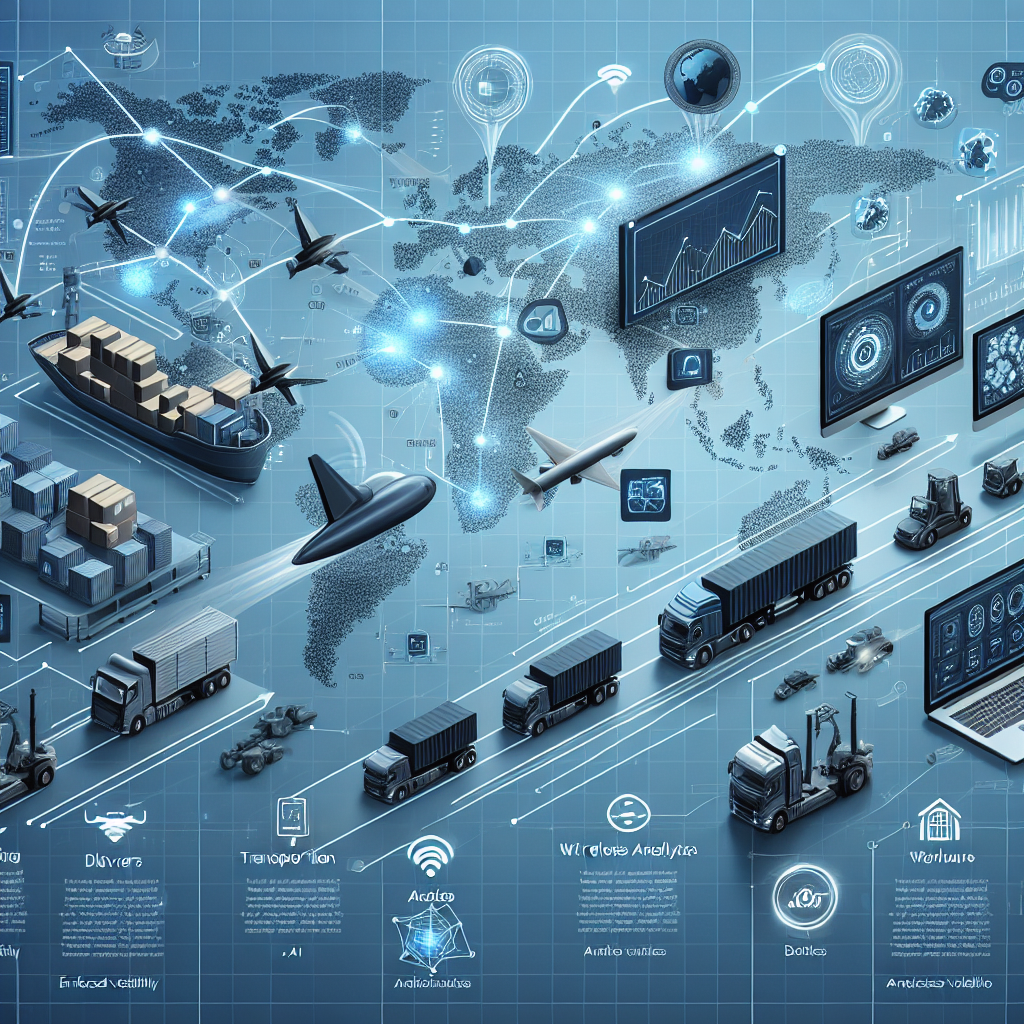In recent years, the logistics industry has seen a significant increase in the use of Artificial Intelligence (AI) for real-time tracking and tracing to enhance visibility and efficiency in the supply chain. This technology enables companies to monitor the movement of goods in real-time, identify potential issues before they occur, and make informed decisions to optimize their operations. In this article, we will explore the various applications of AI in real-time tracking and tracing for enhanced logistics visibility.
1. AI-powered Predictive Analytics
One of the key applications of AI in real-time tracking and tracing is predictive analytics. By analyzing historical data and real-time information, AI algorithms can predict potential delivery delays, identify bottlenecks in the supply chain, and recommend the best route for shipments. This enables companies to proactively address issues before they impact their operations, leading to improved efficiency and customer satisfaction.
2. Real-time Monitoring and Alerts
AI-powered tracking and tracing systems can provide real-time monitoring of shipments and alert stakeholders about any deviations from the planned route or schedule. For example, if a delivery truck is delayed due to traffic congestion, the system can automatically reroute the vehicle to avoid further delays. This real-time visibility enables companies to quickly respond to unexpected events and ensure that shipments reach their destination on time.
3. Inventory Management
AI can also be used to optimize inventory management by tracking the movement of goods in real-time and predicting demand patterns. By analyzing historical data and market trends, AI algorithms can recommend the optimal inventory levels for each product, minimize stockouts, and reduce excess inventory. This leads to improved supply chain efficiency and cost savings for companies.
4. Enhanced Customer Experience
Real-time tracking and tracing powered by AI can also enhance the customer experience by providing accurate and up-to-date information on the status of their shipments. Customers can track their orders in real-time, receive alerts about delivery delays, and communicate with the logistics provider directly through chatbots or mobile apps. This transparency and communication help build trust and loyalty with customers, leading to improved satisfaction and retention rates.
5. Fraud Detection and Security
AI can also be used to detect fraudulent activities and enhance security in the supply chain. By analyzing patterns and anomalies in the data, AI algorithms can identify suspicious behavior, such as theft or tampering of shipments. This enables companies to take immediate action to mitigate risks and protect their assets, ensuring the safety and security of their goods throughout the supply chain.
FAQs:
Q: How does AI improve logistics visibility?
A: AI improves logistics visibility by providing real-time monitoring and tracking of shipments, analyzing data to predict potential issues, and recommending optimized solutions to enhance efficiency in the supply chain.
Q: What are the benefits of using AI in real-time tracking and tracing?
A: The benefits of using AI in real-time tracking and tracing include improved operational efficiency, enhanced customer experience, optimized inventory management, fraud detection, and security in the supply chain.
Q: How can companies implement AI-powered tracking and tracing systems?
A: Companies can implement AI-powered tracking and tracing systems by partnering with technology providers, integrating AI algorithms into their existing systems, and training their employees to leverage the capabilities of AI for enhanced logistics visibility.
Q: What are the challenges of using AI in real-time tracking and tracing?
A: Some of the challenges of using AI in real-time tracking and tracing include data privacy concerns, integration with legacy systems, and the need for continuous monitoring and updates to ensure the accuracy and reliability of AI algorithms.
In conclusion, AI applications in real-time tracking and tracing have revolutionized the logistics industry by providing enhanced visibility, efficiency, and security in the supply chain. Companies that leverage AI technologies can gain a competitive advantage by optimizing their operations, improving customer satisfaction, and mitigating risks in the ever-evolving global marketplace. By embracing AI-powered solutions, companies can navigate the complexities of the supply chain with confidence and agility, driving growth and success in the digital age.

